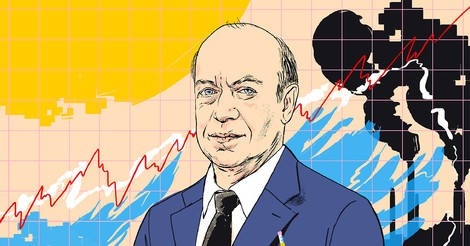Your podcast discovery platform
Curious minds select the most fascinating podcasts from around the world. Discover hand-piqd audio recommendations on your favorite topics.

piqer for: Climate and Environment Global finds Globalization and politics
I'm a freelance journalist, currently based in Madrid. I used to be a News Producer at CNBC in London before, but I thought a little bit more sun might do me good. Now I write for several news organizations, covering a range of topics, from Spanish politics and human rights for Deutsche Welle to climate change for La Marea.
James Hansen: The Man Who Was Right About Climate Change
Sooner or later, if you read about climate change, you’ll stumble across James Hansen. A former NASA scientist, Hansen was one of the first, back in the 1980s, to sound the greenhouse effect alarm. He’s retired from the government agency, but he has never quit the fight.
I was pleasantly surprised to find this profile on James Hansen, written by Justin Gillis for the New York Times. It’s not going to give you any information you wouldn’t find in Wikipedia, but it’s written in such a respectful, humane way that, in my opinion, puts the character in the right light.
It’s not uncommon now to see climate scientists as prophets of doom. The string of bad news they provide has become a staple for us reporters, and the message is clear: We’re already heading towards a bad place, and are headed for a really bad one unless some very unlikely changes take place quite immediately. Hansen was one of the first prophets of climate doom, and he was spot on.
The story starts on a hot night in 1988. James Hansen was watching a baseball game, but he couldn’t quite focus on the sport. The next day he would deliver what would become a milestone presentation in the Capitol, trying to convince politicians to take action about a very serious finding: He knew that Earth was warming sharply, and he knew why.
“It is time to stop waffling so much,” he said, “and say that the evidence is pretty strong that the greenhouse effect is here.”
The profile analyzes how right (or wrong) Hansen’s predictions have turned out to be, and the reasons he didn’t completely hit the bull's eye, even though he got very close. After that it looks into Hansen’s current activities and the state of climate action in the US.
To this day there are people and organisations actively sowing doubt about climate science. Against them, this article is an important reminder that urgent problems should be tackled without hesitation, because if we had listened to Hansen 30 years ago, maybe today the world would be a better place.
